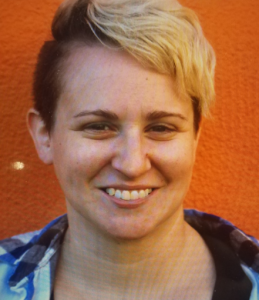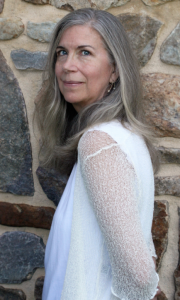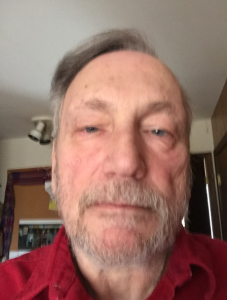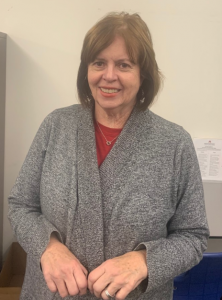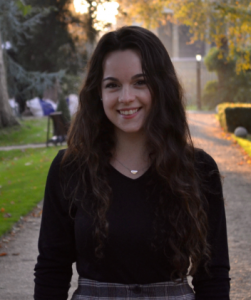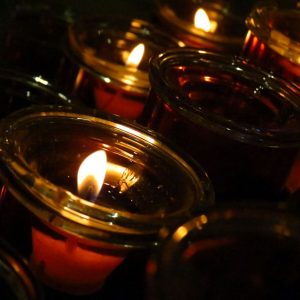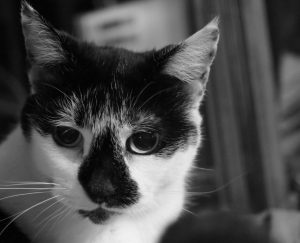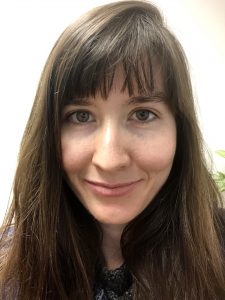
Standing before a group of strangers is the closest thing Angela has to achieving her dreams or making her mark on the world. She seesaws her arm, delivers a joke about a merman who pools his money with a sea urchin to get a triton.
As part of the deal for getting a regular slot, Angela closes the bar down, mopping the sticky puddles off the floor, thinking they look like amoebas, now tritons, now clouds. The crowds at her shows have been meager. Live performances can’t compete with the larger-than-life entertainment programming available at the fingertips of every person with a mastery portal.
When she decided to pursue comedy full time, she faced consternation from each person she told. “No really, I’m happy,” Angela said, her face taking on the earnest insistence of a preacher, a believer. The friends, but mostly the family, looked back bewildered.
“But you make money by telling stories about yourself onstage,” her mother said, perplexed. “Honey, why don’t you tell us some of those stories instead of parading them around to strangers?”
“Maaahm,” she said playfully. She and her mother had never understood each other. What’s the deal with all the people related to you being so vastly different from you? “They’re not just stories,” she said. “They’re funny stories.”
“What makes you think they’re so funny?” her mother said, and Angela could only think of the moments at home when she was young when everything was still and the lamp by her mother’s chair was on as they sat silently at their solitary projects—her mother sewing, her father reading a book, and she drawing in the margins of newspapers—and how only with years passing was it possible to see anything humorous there at all.
On the walk home, the wind blows straight through her jacket, infiltrating her skin, her muscles, until it reaches her organs, dancing low in her kidneys. The deep cold always unearths the questions settled in her gut. Like, can you do something just because it’s good? And, what are the masses of the collective good things you’ve done in your lifetime, how much do they weigh, and would you be willing to part with them? The questions are like stale beer—they sit wrong on the tongue but settle in the bloodstream.
“You can take off your shoes,” the nurse says, “and then step up on the scale.”
Angela obediently removes her boots. She is on the scale, her body and her goodness being added in, although she guesses that goodness would be so light, so particular, that it would vanish if you tried to capture it.
“How do these things usually go?” she asks the nurse once she has stepped off the scale and is zipping up her boots. The light in the room illuminates everything, the dark circles under both of their eyes echoing each other like tidal moons.
“Now that I’ve gotten your vitals, I’ll finish entering them into our system, and the doctor will look them over and be in with you—”
“No,” Angela says, shaking her head. “I don’t mean that. I mean This.” She gestures at her left-side chest.
“It’s very simple,” the nurse says, snapping her chart closed. “As you know, the heart is not adequate for modern life. The stresses of interacting with the mastery portal, high-demand jobs, and the implementation of the extended work week made it just too unsafe not to intervene. The heart is fragile. But with this surgery, we plant an electro-synthetic bolstering mechanism around it, increasing the average life span by at least ten percent. The full procedure takes a little more than two hours, plus an overnight in the hospital for recovery time.”
“Just one night?” Angela asks. That seemed fast to be back out in the world after having your chest cut open.
“Yes,” the nurse says briskly. “It’s a marvel of modern medicine.”
Outside is bitter, the clouds hanging low and close to the buildings, everything dingy in the grey afternoon. In front of the clinic, a few people are passing out pamphlets from a small stand. How wild, Angela thinks, that we are not all deeply religious in such a terrifying world.
She takes a pamphlet as she walks by, but just because she feels sorry for them. Fringe groups, these odd preachers that sprang up a few years ago, yet no one can place them—they have no doctrine to sell, no real name. They seemed interested in awe, in the unnoticed beauty of experiences, and maybe this alone made them awkward, unmanageable, improperly located in the world.
As she enters her apartment, Angela realizes she has begun to feel safer knowing that she—that her heart—will be protected soon. Her building is one of the tallest at fifteen stories, and the windows in the kitchen peer out over the sweep of city and water. This is why she chose the apartment: for the view, the sense of her own smallness.
The pamphlet springs open when she sets it on the coffee table, where she eats and keeps her mastery portal. The portal stores electronic books and projects her to-do list onto the wall every morning, the blue letters sitting immoveable, impersonal as they halo out onto the plaster.
She turns the portal light off and examines the pamphlet more closely. Do they want money? Always the first concern. But no, it didn’t appear so. There was a quote from a Sister Bernadette. Were they reclaiming something old, something Catholic, something so out of style it was now back in style? Sister Bernadette said, “If you regard the world as a work of art, it helps you understand things. The world is filled with a creative beauty, employing only a few principles to make elaborate structures. This is something we can choose to do: to use beauty as litmus test.”
But a litmus test for what?
Sometimes if she is nervous onstage, she plays a trick where she tries focusing on a random variable. The weather is popular. The order you buttoned the clasps on your shirt. The name your parents picked for you. From the stage, everyone is hard to make out. Her adrenaline is usually pumping so quickly that she can’t focus enough to see details. Her eyes sweep over faces, blobs without lips, lips without voices. She thinks of them taking her in from their end of things, everything about her highlighted in the too-bright stage lights. Every curl of her hair drawn up like a singularity, small nose on a delicate face, the rich brown of her eyes impossible to see unless you are close, like you are going to kiss her or tell her a secret thing about you. Pick one of these things and you’ll see that you can’t pick just one, that they can be followed into each another, like wormholes, tunnels into a different time and then back again.
Sister Bernadette from the pamphlet also says this: Making a discovery is more than just stumbling into a revelation. Real discovery takes recognition of what you’ve found and a desire to pursue a world that is more beautiful.
And Angela has a new project that has crept up on her. She has decided that she wants to write a commencement address. Or something like it. No one’s going to read this one from a podium looking out at a field of shining, upturned faces. Could it still be a commencement address if it never made it to a commencement ceremony?
She liked the feeling of having done something, if not the doing itself, which maybe made the commencement address her perfect medium. The ultimate retrospective, doling out advice one did not necessarily have to have taken. She is not sure if she’ll use it as material for her show yet, if it will be funny enough. But there is also something to be said for stumbling into things, trying them on, giving them a whirl, throwing caution away for the irrepressible what-ifs. Sister Bernadette would doubtless agree.
“I understand, I really do,” Angela says, her throat tight. Her free hand flies up to touch her heart.
“Uh-huh. No, it’s no problem. Okay. Thank you. Bye.” The cell phone lies leaden in her palm. How typical of her to thank them for her show’s rejection. Another waste of time with who knows how many nights spent hunched over the coffee table, drafting humor from life’s encounters. Nothing to show for it. She slides the phone into her back pocket and wipes at the bottom of her eyes. So. There would be no further auditions for her comedy show—the executives had decided that it wouldn’t work on any of the networks, that portal audiences didn’t want comedy; they wanted drama and suspense. High emotion, crying or gasping only. Angela could picture the other people in her building, and in hundreds of apartment buildings just like hers, absorbed in a show projected by their mastery portals, sunk into their couches, watching shadows fall in love or lose their lives or have children. She sat for a second on the too-soft couch cushions, blinking.
First, no heart implant. And what were the odds of that? They’d not even called her but left an automated voice report at her apartment, the mechanical voice echoing against the windowpanes. Everyone got approved for it. It was supposed to be a gesture toward equality. Or at least of standardization. They had told her that less than one percent of people were ineligible. God. Speaking of which, what would Sister Bernadette say about this?
“I want it gone,” Angela says.
“All of it?” The barber looks uncertain, her fingers sifting through the long layers that reach Angela’s lower back. But Angela only nods her head yes.
The barber cuts Angela’s hair short and blunt, across her neck and above her eyes. Angela wants to let something about herself start over, to watch it grow from its roots like something stricken and shorn, an unexpected comeback, the plant you have forgotten to water for months suddenly flourishing in a beam of sunlight that had been out of reach—forgotten rotations, shifting hemispheres.
“Aren’t you relieved?” His face is fierce and open, long cheeks that have always reminded her of windowpanes. But he does not open like windows do.
She makes a face at him. “No, I wouldn’t really say that was my first reaction. Disbelief? Disappointment? Any of those might fit a little better.”
“All right, all right,” he says, shaking his head. “I’m saying you should be relieved.” He sips his coffee. Half milk, no sugar, too much like watery mud for Angela’s taste. “Or could be,” he adds, seeing the way she’s staring at him, not altogether friendly.
“Well that’s just great. I’ll make a note: ‘Could be relieved.’ Nice to have options.”
“Fine. I’m just saying that it might not be the worst thing in the world not to have the implant. There are risks.”
“Everything has risks,” she says, drawing her lips together. He is a sometime lover from after college, the period when she was desperately trying to make it, hustling to get a few minutes of stage time at some club or another. Desperately trying, too, to feel less alone. He was the technical stage manager for one of her first shows, a guy uncomfortable with attention, preferring to turn the volume up on other people. These days they drift toward and away from one another, months of quiet preoccupation floating between them. But they have eventually returned to one another in some form.
He seems about to say something, his mouth chewing a phrase over, but he meets her eyes and stays quiet.
“What?” she says. She can’t always read him, but he seems softer than last time.
“You wanna get outta here?”
She thinks of a bit of poetry as they walk. Part of her feels so tenderly toward him that she wants to take him in her arms and keep him close enough that they can hear each other’s hearts beating as if they are contained in one another. But he cannot erase her loneliness.
What was it some poet had said? Or was it her doctor? She couldn’t remember. She did know that it had been something about going out onto her heart. As onto a vast plain.
A month passes, cold days that dissipate as the sun sets and seem to turn the world more bitter. Trees dotting the city intersections darken and drop all their leaves. I guess we’re all giving up, Angela thinks, standing at her window and watching the wind ripple across the river.
On Saturday, she drags herself out of the apartment for one reason: on the back of the pamphlet she’d taken from the preachers was information about a support group for people who are ineligible for the heart implant.
Her recent disappointments feel like they have come at great cost, perhaps even the price of her future. Yet, Angela forces herself to look harder at what else might be there. She thinks this is what Sister Bernadette might suggest. Which is how she finds herself in the half-submerged bottom floor of a community center that is in seriously bad shape. Dislodged tiles expose the dirt underneath the floor, paint peels in irregular strips from the doorframes, and water damage pocks the ceilings.
Taxes go to mastery portal efficiencies and entertainment shows. That’s where voters had decided the money should go, not community buildings. The last library near her had closed three years ago, and Angela is surprised this center still exists and hasn’t been transformed into one of those nightclubs where people can watch everything on camera from their portals without attending in person.
Angela takes in the crowd milling around the deteriorating room. She starts for the table with the paper cups and the coffee urn, and then she sees him adding cream to his cup of coffee that she already knows is diluted beyond any acceptable coffee-to-milk ratio.
“Oh my god, what are you doing here?” she whispers, tugging him away from the group.
“I’m just getting a coffee,” he says, ripping open yet another creamer and smiling at her like this is actually funny.
“What? So now you’re stalking me?”
He laughs. “No. But I do want to support you.”
“Yeah, that’s why I came to this support group. For support.”
He sighs through his nose, and he seems about to reach for her hand, but he’s still holding the coffee. “I haven’t heard from you in weeks. Besides, I really wanted to hear your commencement address.”
“How did you even know—”
“I didn’t. I come here sometimes myself,” he says, ducking his head a little and sipping.
Angela’s stomach knots. “You do? Why?”
“I never went through the process of going to the appointments and getting approval for the implant and all that, and I don’t intend to. Like I told you, I think it has risks. And those risks aren’t worth it to me.”
She stares at him. He seems completely unknown to her. “Why didn’t you say anything?”
He shrugs. “I don’t say a lot of things that I should. But I’m saying it now. And I hope you don’t mind that I’m here because I would hate to miss this mediocre coffee and the chance to hear the wisdom you’ve committed to paper in your commencement address.”
Angela’s heart thrums and the voices in the room mingle in a hymn of life going on. She closes her eyes, feels everything coursing through her like she is the conduit to another universe, like she is the real portal. But maybe that’s not quite right, she thinks. Maybe we all are.
When she opens her eyes, he’s standing there, looking a little concerned. “Okay,” she says. “But you’re the one who’s going to have to live with my devastatingly impactful speech possibly changing everything about your life.”
“Deal.” He grins, and they make their way back over to the circle of people.
The group has gathered some fold-out chairs, and a woman with cropped hair is speaking.
“I declined to receive the implant when I turned thirty and it came time for my procedure. I just got really scared, and I thought, why go through all that? I don’t need to live ten percent longer or whatever they promised. I’m like, why am I not just spending my time doing the things I already want to do, instead of taking artificial steps to supposedly prolong everything? What’s there to prolong if I’m not doing things I really care about? You know, they never even did that many studies about the implant or its effectiveness. And here we are, having our bodies sliced open for a surgery that promises things that have never even been proven.” She shakes her head and runs her hand over her face.
“I just don’t want that kind of life. That’s all. I want to find my own way to the things that matter.” There’s a gentleness in the room, a waiting for someone else to share.
One man talks about how he started going through the process of getting the implant, but then his doctor told him he’d only be eligible if he first got plastic surgery to fit the standardized body size requirement. An older woman shares that her daughter was one of the first to get the implant and died of complications. After that, she didn’t want anything to do with it, even as they were phasing in later generations.
The circle of speakers continues. No one has the heart implant, and no one wants it.
It’s Angela’s turn. She reaches into her back pocket and unfolds a square of paper she salvaged from the wrapping around her egg carton. This is where she wrote her commencement address, added beauty to the world where nothing before had been articulated.
Her heart is pounding, the song of her body unrelenting as the wind outside undulates the water around the city. The people sitting before her shift and murmur in their seats.
This is what she has, and it is real. And so, she speaks.
Sarah Westbrook is a writer from New Hope, Pennsylvania. She received her B.A. in English and Creative Writing from Oberlin College. She is an editor at an organization that researches social policy.
